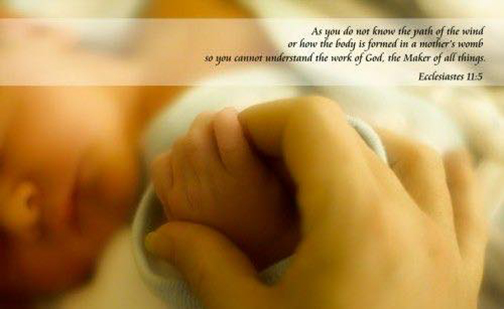
| “As you do not know the path of the wind, or how the body is formed in a mother’s womb, so you cannot understand the work of God, the Maker of all things.” |
| —Ecclesiastes 11:5 |
As we human beings have gained more and more knowledge, it seems as if we have become more and more arrogant. The more we think we understand how things work, the more we inject ourselves into the equation.
One of my favorite illustrations of this is the much discussed subject of anthropogenic (human-caused) climate change. The very idea that puny humankind could actually do something to alter the complexity of the climate, which God designed and which He alone maintains, is laughable.
This is particularly true when at the heart of this assertion is an attempt to socially engineer the distribution of wealth and affect the geopolitics in such a way that capitalism would be replaced by socialism. If we believers accept the truth that God’s perfect will prevails in every situation, how can we doubt that it is God who alone controls the most fundamental aspects of this planet on which He has placed us?
On a more personal level, how often do people wail against God when some tragedy happens. “How could God allow this earthquake, or this train wreck, or this event, or that one?” Such wailing displays a fundamental misunderstanding of God—at least to the extent that He has revealed Himself to us. Only arrogant humans would presume to understand God.
Even faithful believers in God—through the power of His Son, the Lord Jesus Christ—need reminding that, while God loves us with His everlasting love, we can never presume to fully understand Him. This verse, found in Ecclesiastes 11:5, puts it well:
As you do not know the path of the wind, or how the body is formed in a mother’s womb, so you cannot understand the work of God, the Maker of all things.
We humans simply do not possess the mental and spiritual capacities to fully understand God. That’s why we must respond in faith to His calling us to Himself.
This day, let us set aside our arrogance and place our trust in the God whom we cannot fully comprehend. His love and sacrifice for us should be, and must be, enough. The fact that He has revealed Himself to us through His Son must be sufficient for us until we enter heaven. Once we rest for eternity at Jesus’ feet, then, and only then, “we will know even as we are known” (1 Corinthians 13:12). And that, dear ones, must be sufficient enough for now.

Based on a blog originally posted on Tuesday, May 17, 2016